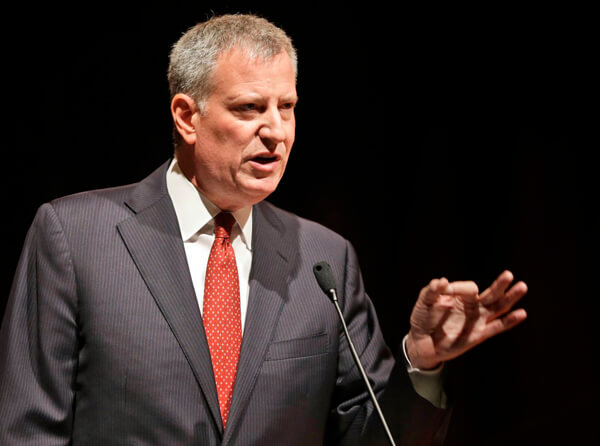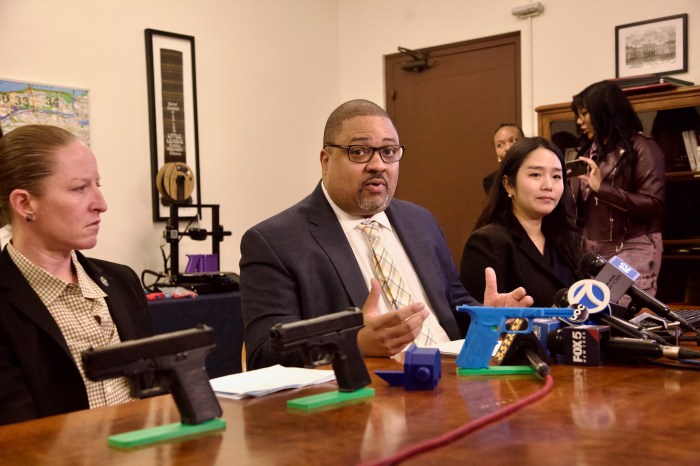Mayor Bill de Blasio and City Council Speaker Melissa Mark-Viverito say that, for the first time, the City will fund universal access to legal services for tenants facing eviction in New York City Housing Court.
The Mayor’s Office said on Sunday that a $93 million allocation doubles the administration’s existing funding for tenant legal services.
Legal services have proven effective at reducing unlawful evictions and preventing displacement, the Mayor’s Office said.
It said that, since beginning an unprecedented expansion of tenant legal aid two years ago, evictions have dropped by 24 percent.
“We are the biggest city in the country to level the playing field between tenants and landlords in housing court. To anyone being forced out of their home or neighborhood, we are fighting for you. This is still your city,” de Blasio said.
“Bringing more justice to vulnerable New Yorkers is a hallmark of this City Council,” Mark-Viverito said. “Since passing landmark legislation in 2015 to create the Office of the Civil Justice Coordinator, the Council has tirelessly worked to figure out how to best provide legal representation to all low-income New Yorkers facing eviction.
“Today, we’re closer than ever to realizing this goal,” she added. “The groundbreaking legislation outlined by the City Council and the Mayor will ensure that no low-income New Yorker is forced from their home without legal representation.”
The new funds are on top of the City’s unprecedented $62 million-a-year commitment to expand legal services for tenants, which was launched in 2014, according to the Mayor’s Office.
It said the new funds will be phased in over the next five fiscal years, starting with $15 million in Fiscal Year 2018, to reach $93 million by 2022.
At full implementation, the Mayor’s Office said the City’s investment in anti-eviction legal services will total $155 million.
It said the City Council will memorialize the program in legislation.
Since January 2014, the Mayor’s Office said administration-funded legal service programs have served more than 34,000 households and assisted more than 100,000 New Yorkers.
The number of tenants in Housing Court with legal representation has risen to 27 percent, up from 1 percent in 2013, the Mayor’s Office said.
It said evictions by City Marshals have decreased 24 percent, representing more than 20,000 New Yorkers who were able to stay in their homes in 2015.
Universal access will provide free legal representation in court to New Yorkers with household incomes below roughly $50,000 (200 percent of the federal poverty level for a family of four), and legal counseling to those earning more, the Mayor’s Office said.
The City estimates 400,000 New Yorkers will be served under the program every year at full implementation.
“It is one thing to talk about the battle that may be impending with the Trump Administration, it is another to prepare for it with tools and resources. As chair of the Committee on Housing and Buildings, I commend the Mayor on the announcement made today,” said Council Member Jumaane D. Williams (D-Brooklyn), Deputy Leader of the City Council.
“It moves our city dramatically forward in helping keep New Yorkers in their homes,” added the representative for the 45th Council District in Brooklyn. “The lack of preservation of affordable units and insufficient investment in low-income construction are prime drivers of our record homelessness.
“Today, with the historic Right to Counsel being funded, and the addition of 10,000 units being steered to low and extremely-low income, we will help push back on flippant evictions and take a big step toward providing units of housing for those who need it most,” he continued. “No longer will low-income New Yorkers have to face the prospect of showing up to court with inadequate legal representation, just because of a financial burden.”























